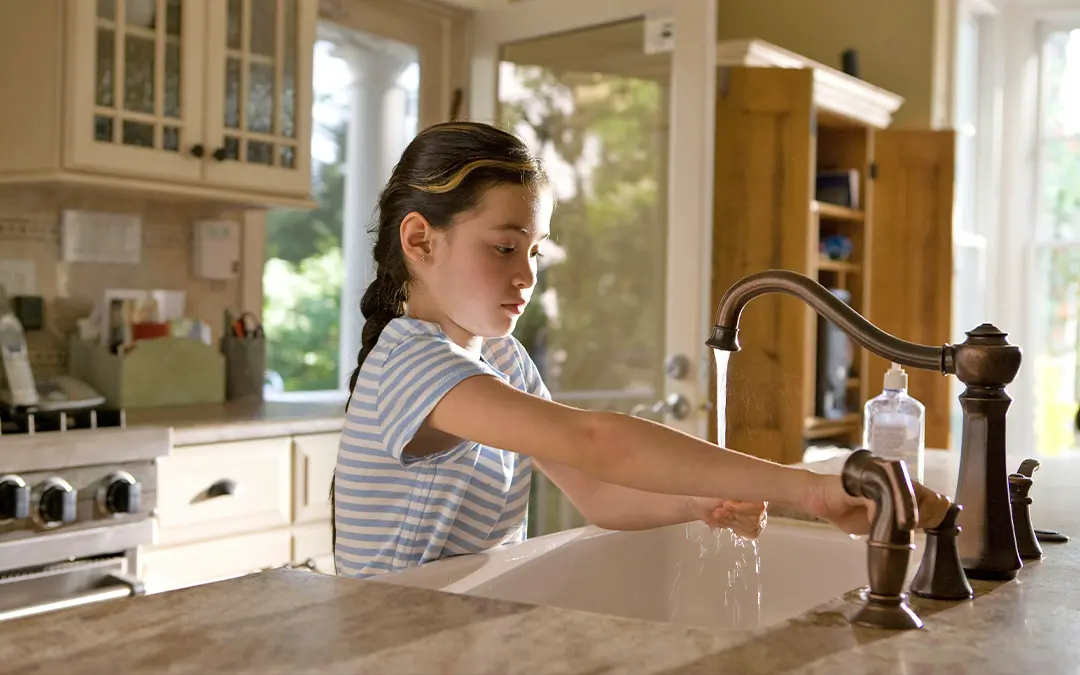When the COVID-19 pandemic began, most people expected it to be temporary. Schools closed, routines changed, and families did their best to adjust. Years later, life has largely returned to normal but for many children and teens, the effects of those disruptions are still being felt.
Research continues to show that the pandemic left behind more than just memories of masks and online classes. It created a wave of emotional and behavioral challenges that many young people are still struggling to manage today. A 2025 paper published in Cureus found that children exposed to stress and trauma during the pandemic are showing higher rates of mental health concerns and substance use. These findings remind us that healing from such a major event takes time, understanding, and support.
How the Pandemic Changed Daily Life for Kids
During the pandemic, children lost access to many of the stabilizing routines that help them feel secure. School closures meant fewer opportunities for social connection. Sports, clubs, and after-school programs stopped.
For some children, this sudden change triggered lasting feelings of fear, sadness, or uncertainty. For others, it created habits like spending excessive time online or withdrawing from friends. Over time, these experiences can take a toll on a child’s emotional health.
The Impact of Lost Time in School
One of the most significant effects of the pandemic was the loss of in-person learning time. Months or even years of disrupted education didn’t just slow down academic progress. It also limited social and emotional growth.
Teachers and counselors have noted that many students are still catching up, not only in reading and math, but also in social skills, self-confidence, and attention span. Younger children who missed out on early classroom experiences may find transitions harder now, while older students may feel anxious or discouraged about falling behind.
For some, this academic pressure adds another layer of stress, increasing feelings of frustration, self-doubt, or isolation. When combined with the emotional challenges of the past few years, it’s easy to see why so many young people are struggling to regain their footing.
When Emotional Struggles Lead to Risky Behaviors
As children grow into teenagers, they naturally start seeking out new experiences. But when mental health struggles go untreated, this exploration can sometimes turn risky. The Cureus study noted that exposure to chronic stress or trauma in childhood increases the likelihood of turning to substances like alcohol or drugs later on. This isn’t about “bad choices,” it’s often about trying to cope with overwhelming emotions.
When kids feel anxious, lonely, or disconnected, they may look for ways to escape those feelings. For some, that could mean experimenting with substances or spending more time in online spaces where risky behaviors are normalized. Unfortunately, the pandemic also interrupted access to mental health care for many families, which allowed small problems to grow into bigger ones.
Signs Your Child Might Be Struggling
Every child is different, but some common signs that a young person might be struggling include:
- Ongoing sadness, worry, or irritability
- Withdrawing from friends or family
- Sudden drops in grades or loss of interest in activities
- Changes in sleep or eating habits
- Secretive behavior or unexplained mood swings
- Talking about feeling hopeless or “numb”
It can be tempting to hope these issues will pass with time, but early support can make a major difference. The sooner a child has someone to talk to, the easier it is to rebuild healthy coping skills and confidence.
Helping Children Heal and Reconnect
The good news is that children are resilient. With the right support, they can recover and grow stronger from challenging experiences. Here are a few ways parents and caregivers can help:
- Create structure and predictability. Regular routines around mealtimes, bedtime, and homework can help children feel safe and grounded.
- Encourage open conversations. Ask gentle questions and listen without judgment. Even if your child doesn’t want to talk right away, knowing you’re available matters.
- Model healthy coping. Show your child that it’s okay to ask for help, take breaks, and care for emotional well-being.
- Rebuild connections. Social and extracurricular activities are key to restoring a sense of normalcy and belonging.
- Seek professional guidance when needed. Therapy or counseling can help children learn how to process feelings in healthy ways.
How the Children’s Treatment Center Can Help
At the Children’s Treatment Center, we understand that the pandemic didn’t simply end when schools reopened—it reshaped how many children experience the world. Some are carrying silent stress that affects their emotions, relationships, or behavior. Others may be showing early signs of substance use or risk-taking that worry their parents.
Our team of compassionate professionals offers comprehensive, trauma-informed care for children and teens. We provide evaluations, counseling, and treatment for conditions such as anxiety, depression, and trauma, along with family therapy to strengthen support at home.
We work closely with parents to create an individualized treatment plan that meets each child’s unique needs so they feel heard, understood, and empowered.
If you’ve noticed changes in your child since the pandemic, you don’t have to face it alone. The Children’s Treatment Center is here to help families restore balance, hope, and connection.
To learn more about our programs or to schedule a confidential consultation, please contact us today.

